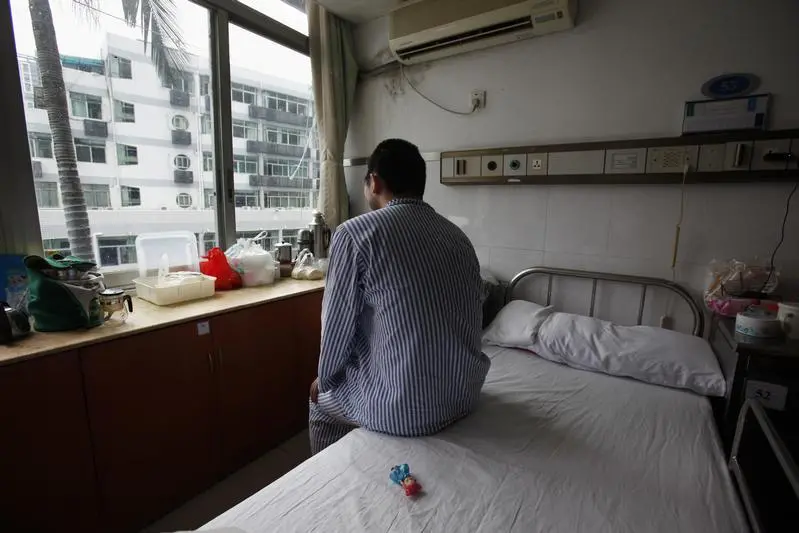PHOTO
Saturday, Apr 02, 2016
Abu Dhabi
The rate of stroke in the UAE may be comparable to international prevalence rates, occurring in about 120 out of every 100,000 people. But nearly half of all people who suffer strokes in the UAE are 45 years or younger, which is considered a very young age.
In contrast, 80 per cent of those who suffer strokes across the world are aged 65 years or older.
A new group has been working since the beginning of this year to develop a culture of support for affected patients and their families in the capital.
“When my father suffered a stroke last September (2015), it seemed catastrophic to us all. It affected his focus and his memory, and limited his bodily movements. So it helped to touch base with other people in his situation, and definitely gave him confidence that he could regain his abilities,” Misfer Al Ahbabi, 32, an Emirati event manager, told Gulf News.
Misfer’s 70-year-old father was one of four patients who attended the support group’s first meeting in January, which was organised by rehabilitation centre, Amana Healthcare.
“Over time, we hope that patients and their families will themselves set up future meetings and use the support groups to recover from this life-changing event,” said Dr Khalid Anwar, physical medicine and rehabilitation consultant at Amana.
Support groups are common features of many medical facilities across the world to help patients and their caregivers find comfort and share helpful advice on a common interest. While a number of such groups exist in the UAE, including for medical concerns, this may be the only one for stroke patients.
“It is absolutely vital to get the right treatment and support after a cardiac incident, as nearly 30 per cent of those who have suffered a stroke die within the first year. Moreover, patients who have suffered a stroke have a higher risk of getting another unless they make the required lifestyle changes,” Dr Anwar said.
Strokes occur when blood flow to the brain is cut off, either because of a blocked blood vessel or a brain bleed. As a result, brain cells are deprived of oxygen and begin to die, causing loss of various abilities and even death. People who have hypertension, diabetes, cardiovascular disease or hyperlipidemia, as well as those who smoke or drink, are more prone to suffer a stroke. Strokes are also more common in older people, men and those of South Asian descent.
“In the UAE, strokes are a major cause of disability and the second leading cause of death after road traffic accidents,” Dr Anwar said.
Taher Kaissi, a 40-year-old logistics and supply chain executive, suffered a stroke about two years ago. He then received outpatient therapy twice a week for about six months to deal with his speech and movement impairments.
“It helps to meet others who have been through the same situation, and I had some impairment in my speech after the stroke so it is nice to be able to practise my speech. For me, the biggest source of comfort when I attended the group was knowing that I was not alone,” he said.
Kaissi said he was uplifted after hearing everyone else’s experiences, and it helped his family to hear how other caregivers had helped their ailing family members.
By Samihah Zaman Staff Reporter
Gulf News 2016. All rights reserved.





















